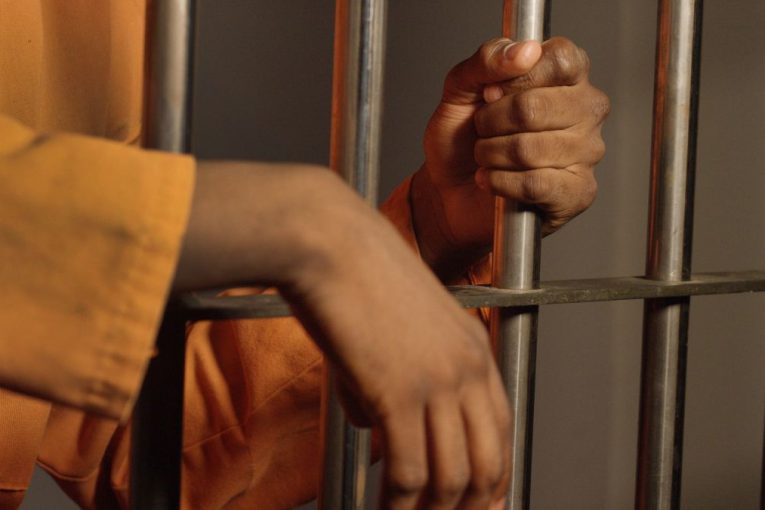

By Rahsaan Thomas
People in California county jails are being punished for being Deaf, and that is unlikely to change any time soon.
“I received over 1,400 disciplinary write-ups in the Ventura County Jail during my eight years there,” said Jaime Paredes, known as “Happy.”
Paredes was born Deaf. With a hearing aid, he’s hard of hearing. He relies on American Sign Language (ASL) to communicate, although he can speak basic English. While in the county jail, there were no interpreters, and that caused a world of problems with the deputies.
“The [officers] thought I was being rebellious, but I wasn’t; I couldn’t hear them,” Paredes said.
Deaf people often do not know the jail rules—which are given orally when they arrive—or understand verbal commands, and officers may use unnecessary force against them when they don’t respond to an order they cannot hear, noted Prison Law Office Staff Attorney Rita Lomio. Interpreters are critical to effective communication for Deaf people.
The Americans with Disabilities Act of 1990 (ADA) requires state and local governments to provide accommodations for people with disabilities so that they may have equal access to public spaces, programs, and services, including the law.
ADA includes requirements for Deaf people to have effective means of communication, including sign language interpreters and technical aids like Deaf compatible telephones. Under the federal ADA regulations, someone must be able to “effectively, accurately, and impartially” use specialized vocabulary, including ASL, to qualify as an interpreter for Deaf people. But California often did not follow these laws.
One person who goes by “Never Broke Again” reports going four years without being able to use a phone while in the Santa Rita County Jail.
“It took two weeks for someone to bring me a phone for Deaf people, but it didn’t work very well,” he said. “I went four years without a phone call in Santa Rita Jail.”
Both Paredes and Never Broke Again described not receiving a hearing aid for about a year and that the county jails where they were held allowed only one hearing aid per person.
Not having hearing aids or interpreters caused them each major hardships.
Deputy sheriffs constantly sent Paredes to solitary confinement because of the disciplinary infractions he received. He lost visits, canteen (purchases from the commissary store), and yard time several times during his eight years in Ventura County fighting the death penalty. He ended up in state prison sentenced to 71 years to life.
Never Broke Again reported getting into a fight one spring with a deputy in Santa Rita County Jail because they couldn’t understand each other. Never Broke Again went back to his cell at count time and found it locked. No one explained to him that his cell was being searched. A deputy flashed a light in his eyes, effectively blinding him. He swung.
“I reacted so fast because I could not see or hear at the moment his command was being given,” Never Broke Again said.
The deputy took him down with a nightstick. Once he was handcuffed, several other officers beat him up.
“My disciplinary hearing was held without an interpreter because, [as I was told,] ‘We don’t have that here,’” Never Broke Again said. “I stayed in Ad Seg [administrative segregation] for two years. They only let me [go] out to [the] outside yard exactly four times in two years.”
However, there are 58 separate county jail systems, each requiring a separate lawsuit to enforce ADA laws.
“We still are fighting for the rights of Deaf people in California [correctional facilities] every day,” Lomio said.
It took a lawsuit and three enforcement orders to get state prisons closer to ADA compliance. However, one state court order covers the whole California prison system—it may take 58 individual local court orders to get county jails into compliance.
“They [Deaf people] often are overlooked and dismissed, I think, because they are such a small population,” Lomio said. “Currently 64 people in California prisons communicate through sign language. That’s 0.06 percent of the total prison population. Those problems are only heightened in county jails, which have much smaller, frequently rotating populations, where people may be less familiar with their legal rights, and where there usually are no staff sign language interpreters.”
Lomio recalls being contacted by a Deaf person in a small, remote county jail who was housed there during the COVID-19 pandemic. During his six months there, he wasn’t provided with a sign language interpreter for medical appointments or for education about how to protect himself from COVID-19. He was the only Deaf person in the jail.
“The local jails have developed [their] own local operation procedures,” Never Broke Again said. “They do not [abide by] other existing laws even though they know they should.” And Deaf people are suffering.
Rahsaan “New York” Thomas co-hosts and co-produces the Pulitzer Prize–nominated and Dupont Award–winning podcast Ear Hustle. Originally published by Vera Institute of Justice.
